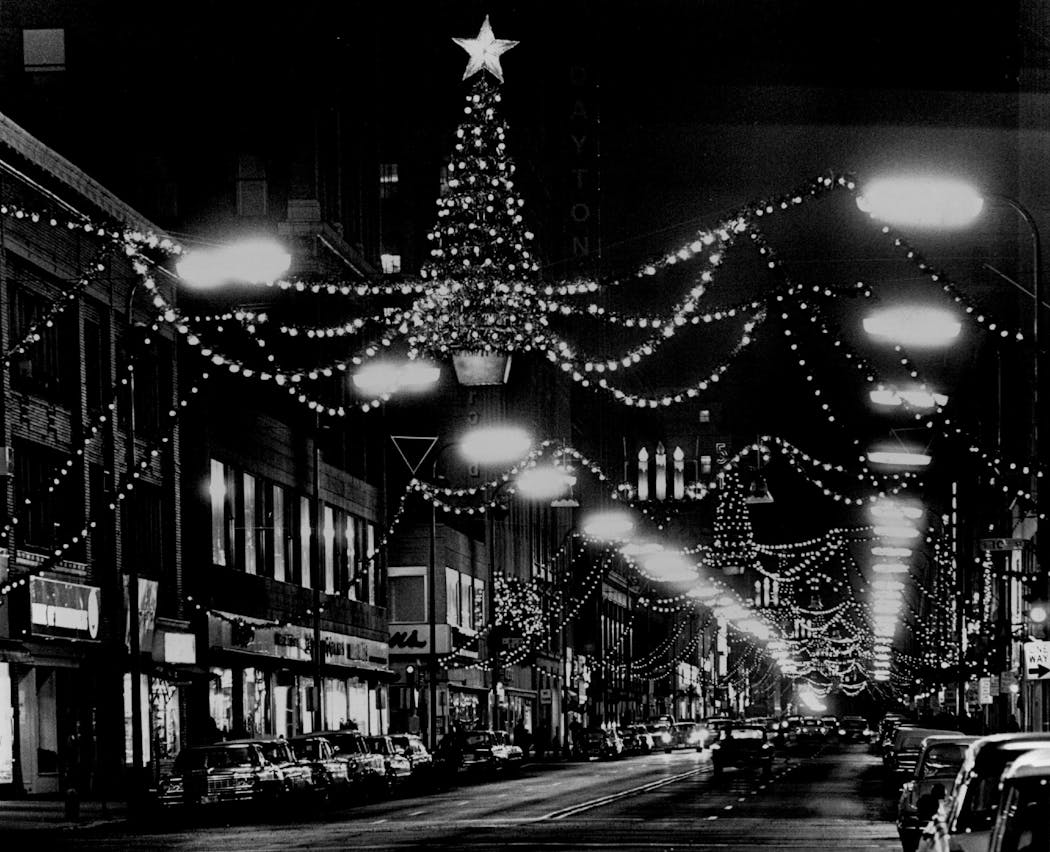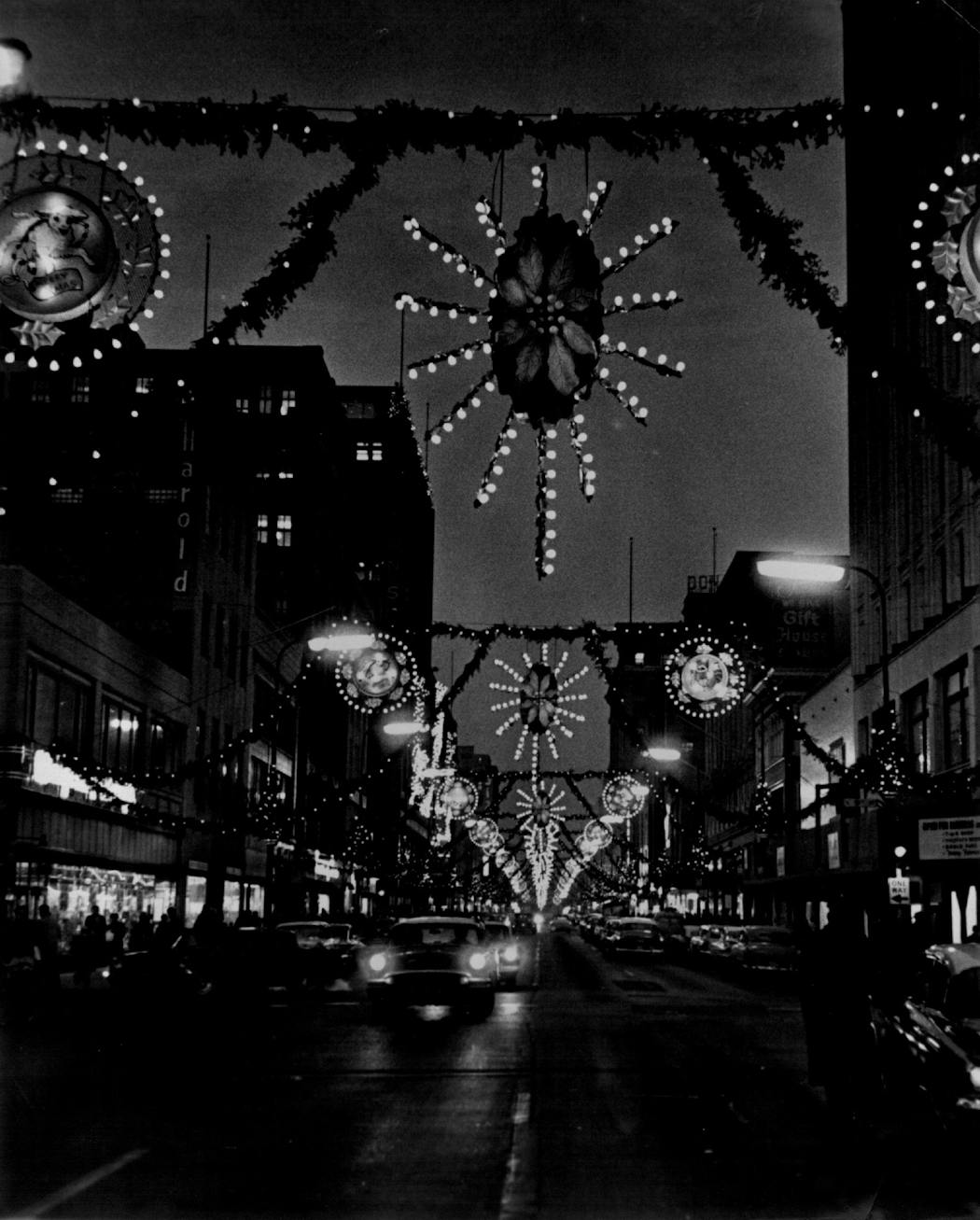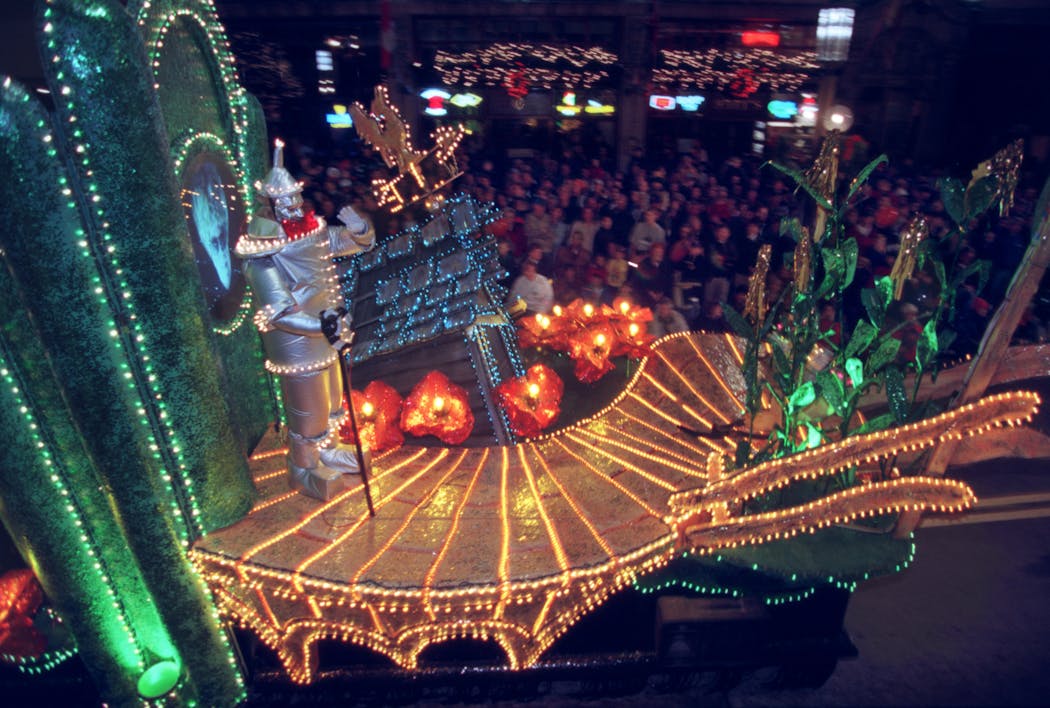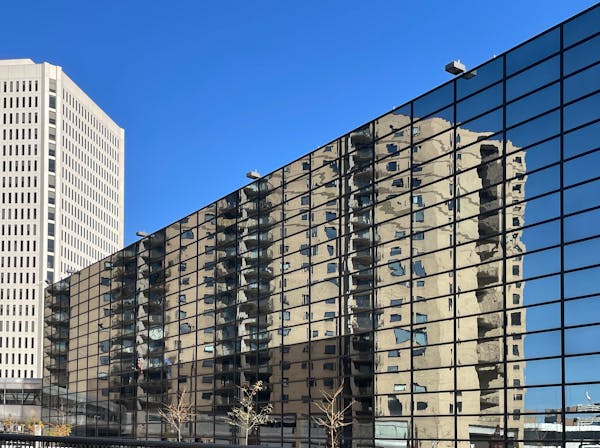During the past few weeks, downtown Minneapolis retail took another one-two punch. Nordstrom Rack evaporated, seemingly overnight, and Marshalls announced that it will pull up stakes in January.
People wondered aloud about what it meant for the future of shopping downtown, but no one lamented that they would miss the holiday displays at either store. Downtown doesn't have that draw anymore. It hasn't for a while. But it used to.
A hundred years ago, people took their kids downtown to see the mechanical elephants in the Dayton's department store window. In 1925, citizens flocked to the old Gateway Park and waited for a marvel of the modern world: the remote illumination of the city's official Christmas.
In 1926, a joint effort by the Minneapolis Electrical League and the Civic and Commerce association held a contest to find the best houses arrayed with Christmas lights, rather newfangled at the time. Business owners and homeowners bought strings of Mazda bulbs ($1.49 for eight), each as big as a butcher's thumb, and festooned their structures to show off their holiday spirit — and the fact that they had electricity.
In 1927, the Downtown Retailers Association went all-in on decorations for the city streets, and the local papers were happy to blow the horns.
"MINNEAPOLIS, DECLARED BEST DRESSED CITY, SET FOR GREATEST YULETIDE" was the Minneapolis Star's headline on Nov. 28.
"Last year Minneapolis had the finest Christmas loop in the nation, and this year the downtown decorations are better than ever before," said the secretary of the association, W. J. Hayes. "I doubt if there is anything in the United States or in the world to compare with the display of this year."
The front-page story noted the "elaborate electric and foliage displays." A store's "blazing window" would encase a tiny air show or a street fair, with mechanical plans and Ferris wheels. Lights were concealed within walls of fir, and "the odor of the Christmas balsam defies the odor of the automobile exhaust, even on Nicollet Avenue."
This "veritable fairyland" was so impressive that the police department vowed to have extra officers available to handle the throngs who packed trolleys to come downtown, gawk and marvel, and decide for themselves whether Minneapolis was, indeed, "The Nation's Champion Christmas City."
It was a tradition that would continue for decades. Nicollet would be crossed by arches of illuminated boughs. Some years there would be trees seemingly floating above the street; other years, strings of massive bells. It set the silver-and-gold standard for holidays downtown.
In the 1990s, the kinetic parade of Holidazzle caravans winding down Nicollet re-created some of that early excitement for a decade. But it was harder to lure people downtown.
We had indoor malls. The temperature during the 1927 festivities was a few degrees north of zero. The malls were warm, and they had decorations, as well. But they never achieved that tunnel-of-yule effect that Nicollet Avenue had. In part because while malls may have a million holiday lights, they lack what downtown had: the night sky to give those lights a backdrop. It's never dark in the mall. There are no lights shining in the great cold black, carving out a place for brightness and joy.
The end of downtown as a Christmas destination was a choice, one we made and occasionally lament in an abstract way. And now, even the mall experience is diminished, as we shop with clicks and scrolls.
It's all so much easier now, and getting in a car, driving to a store, seems like so much work. But you have to admit it was wonderful, once. And you have to suspect that our times are poorer for the loss.
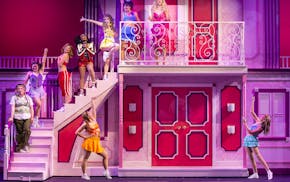
For 'Legally Blonde' star, 'being underestimated is her secret superpower'

Restaurant openings and closings in the Twin Cities

Minnesota's Amy Thielen launches old-fashioned radio show for food lovers
Yuen: How success has pushed Minnesotans off sidelines in trans athlete debate

